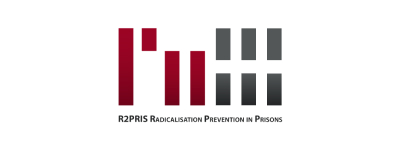In a significant shift within the P/CVE field, a new IPS-partnered initiative brings together a consortium of key European institutions aiming to contribute to the effective and coherent implementation of legislation and practices that protect victims’ rights, focusing on hate and (violent) extremism incidents.
In the current polarised European landscape, intolerance, hate, and extremist manifestations have been mushrooming, both online and offline, deeply affecting individuals, groups, and communities. However, despite the prevalence of the phenomenon, its consequences for those who suffer from it are often neglected or poorly managed, which is especially pressing as 5 to 9 in every 10 hate incidents in Europe go underreported, mostly due to a lack of information, trust in the system, fear of further trauma and humiliation.
These figures indicate the urgent need to bring victims’ perspectives forward to the criminal justice system, especially so in cases of hate and (violent) extremism, since its victims are granted an especially vulnerable status, raising awareness and mitigating any biases within the different relevant professional categories handling these cases, including law enforcement, the judiciary, and civil society.
VicTory is a 24-month initiative, set to begin in November 2024, that brings together experts and practitioners from Spain, including the Basque Autonomous Community, Portugal, Italy, Hungary, and Finland.
The VicTory project focuses on ensuring the effective and coherent implementation of legislation and good practices, including restorative-based, to support and enhance victims’ rights, promoting their adequate support and avoiding secondary victimisation through the capacitation of relevant practitioners. By investing in the continuous and comprehensive capacitation of professionals dealing with victims, both from the governmental and non-governmental sides, the VicTory project is solidifying a cooperative approach to victim support, grounded on sound and evaluated practices and the most up-to-date European legislation. IPS_Innovative Prison Systems is proud to be one of the project’s partners, contributing with its expertise on radicalisation and extremism prevention, judicial and community practitioners’ capacity building, and holistic cooperative approaches.
IPS_Innovative Prison Systems will lead efforts to build professional skills through online and in-person training tailored to those working directly with victims of hate crimes and violent extremism. The company expert researchers and consultants will design and implement e-learning courses and organise exchange events to foster expertise among professionals. In addition, IPS will create an accessible information platform to support victim-centred practices and establish a cooperative network among institutions. Drawing on their strong background, IPS will also lead the project’s communication and dissemination activities to broaden its impact across relevant networks.
These comprehensive and specialised training efforts for victim support workers and criminal justice professionals will clarify the specificities of hate and (violent) extremism incidents, its consequences for victims, victim-sensitive communication, empowerment strategies, and how to build a psycho-social, gender-bound, and trauma-informed response, including a dedicated section to restorative-based solutions and practices, thus directly improving the support and management provided to these victims.
In addition to training efforts, the project will also establish a framework to promote and guide multi-agency cooperation between justice professionals and civil society, to be aided by an online cross-sectoral platform. This platform will streamline cooperation and the establishment of transnational links and trust between different professionals in European countries, enabling more coordinated and informed responses.
Moreover, and importantly, a restorative-centered programme for victim support will be created, implemented, and evaluated. By mobilising good practices within the restorative-based justice framework and invaluable knowledge from the consortium, different solutions will be put forward to be tested, directly by practitioners, and compiled into practical guidelines.
This project marks a key advance in the P/CVE field, bringing victims forward and placing them at the core of governmental and non-governmental efforts. Through the combined efforts of all partners, VicTory is committed to fostering a lasting impact on how hate and extremism-related incidents are managed, at a local, national, and European level.
Holistic Radicalisation Prevention Initiative
Know more about this project

VicTory
Restorative and victim-centred approach to mitigate hate and (violent) extremism
VicTory is coordinated by the Euroarab Foundation for Higher Studies (Spain), in partnership with Ararteko, the Ombudsman of the Basque Country (Basque Country), the Faculty of Law of the University of Porto (Portugal), IPS_Innovative Prison Systems (Portugal), Associazione Carcere e Territorio (Italy), Hungarian Helsinki Committee (Hungary), ILGA Association (Portugal) and Map Finland (Finland).
Learn more from the project page.
Related projects

WAYOUT
Integrated Exit Programme for Prisons and Probation

SHIELDed
Safeguarding symbolic places of personal and religious development and freedom in Europe through a multi-stakeholder approach.

SafeBorders
Strengthening Judicial expertise and Frontline support to combat Child Trafficking

REFUGIN
Communitarian approach for a holistic young refugee long-term integration

R4JUST
Radicalisation Prevention Competences’ Development Programme for Justice Professionals

R2PRIS
Radicalisation Prevention in Prisons

R2COM
Radicalisation and violent extremism prevention in the community

PRACTICIES
Partnership against Radicalisation in Cities

PARTES
Participatory Approaches to Protecting Places of Worship

MIRAD
Multi-Ideological Radicalisation Assessment towards Disengagement

KOBAN
Identifying future capabilities for Community Policing

INTEGRA
Integrated Community, Probation and Prison Services Radicalisation Prevention Approach
Related news

JUSTICE TRENDS Magazine Launches 14th Edition: Expanding the Frontiers of Rehabilitation Support
Read More »
IPS’ CEO joins leading experts at event organised by INTERPOL to discuss the future of offender management
Read More »






